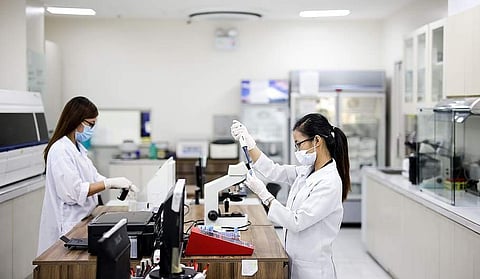

To help create the vaccine for the novel coronavirus infection, a team of researchers has described the clinical features of the lungs of deceased COVID-19 patients.
According to the study, published in the New England Journal of Medicine, Steven J Mentzer, a thoracic surgeon at Brigham and Women's Hospital and a team of international researchers examined seven lungs obtained during autopsy from patients who died of COVID-19.
They compared this group to seven autopsied lungs obtained from patients who died of acute respiratory distress syndrome secondary to influenza A (H1N1) infection as well as to 10 age-matched uninfected control lungs.
Both COVID-19 and influenza are the same category of virus and both infect the respiratory tract.
While the lungs shared some common features, there were distinctive features related to blood vessels seen in the lungs of patients who had died of COVID-19.
The research team observed that COVID-19 damaged the endothelial cells (vascular lining cells), causing severe endothelial injury.
Patients with COVID-19 showed widespread blood clotting as well as new vessel growth -- the latter likely a result of the body's response to the virus.
The team saw signs of a distinctive pattern of pulmonary vascular disease progression in some cases of COVID-19 compared to that of equally severe influenza virus infection.
Some of the key points from the study are: the damage to vascular cells helps explain the serious blot clotting observed in patients and a unique response, intussusceptive angiogenesis (IA), is the way the body compensates for the thrombosis and blood vessel damage.
This study shows the need for more research on angiogenesis and the vascular effects of COVID-19.
